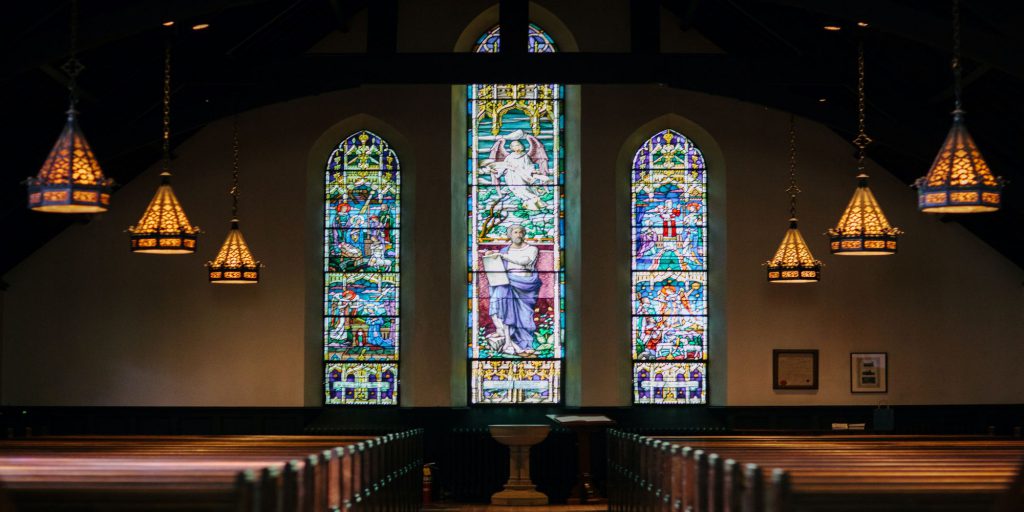
Published April 16, 2021
About two weeks ago, the Wall Street Journal ran a story with the headline “Virtual Reality Brings Joy to People in Assisted-Living Facilities.” The theme of the story was pretty simple: Studies show that old people using virtual reality, or VR, feel healthier and happier because they can travel and sightsee – virtually – almost anywhere on the planet.
Now that’s very good news for a couple of reasons. First, if I were in a nursing home, especially in New York, I’d want at least the illusion of being able to escape to Paris or Tahiti. And second, the story is a perfect alibi for the expensive VR headset that now sits on my desk in our basement. I’ve been a video gamer for nearly 40 years, and VR gaming is simply fantastic. As it turns out, the lovely Suann, my bride of half a century, fully supports me in this because when I’m on the headset, I can’t be pestering her.
But here’s my real point in mentioning this. Suann and I were both shaped by a culture of books; a culture made possible by typography and anchored in the sequential logic of a well-organized, printed sentence. Print culture frames the way we think. It feeds our imaginations, governs our discourse, and orders our lives. It has a kind of stability and permanence.
So for me, whatever VR’s negative effects might be, they’re modest and short-term because I wasn’t formed by that world. That same print culture shaped the American Founders and the American Founding, and thus our politics, our laws, and all of our civic institutions. Our grandchildren are growing up in a very different thought-world, and that experience will have not just personal, but also public consequences.
We’re living through a re-formation not in so much in religious doctrine or theology, which are now seen as a waste of time by many in our leadership classes, but in the fundamental way we understand culture and anthropology – in other words, how we think about what it means to be human. This “Great Reset,” to borrow a term from the World Economic Forum, is driven by very rapid advances in science and technology, and it’s a mix of light and shadow.
We’ve seen wonderful advances in medicine, communications, transportation, and support for the disabled. And we’ve also seen a seismic growth in cultural illiteracy, internet mobs, and pornography. Any tech-savvy boy of 15 can right now find and download intensely explicit VR sex games without too much trouble. Today’s new tech tools will inevitably impact the learning skill, mental health, and sexual behavior of our young people.
But the even more immediate problem is the way our technologies cocoon us all in self-absorption, with endless distractions and constantly new appetites. The pronoun “us” that constitutes our identity as a nation shrinks proportionately as the pronoun “me” expands. And this is not good news, because the Founders created a country that requires an actively engaged, thinking citizenship with a sense of shared responsibility for the res publica, the “public thing” or republic, we know as America.
That’s not the nation we now have. The current American understanding of personal liberty is not the freedom to know and do what’s right, but a repudiation of real reality itself. This has consequences.
The United States is a uniquely man-made creature. As a country, we’re grounded not in blood or land or even language, but in a system of ideas – ideas instrumentalized in law. From the start, America has been a mixed marriage of Biblical realism on the one hand, and Enlightenment aspirations on the other. The more the Biblical side of the marriage gets kicked out of bed, the more unreal and discarnate our politics becomes.
The transgender issue is a great example. We’ve created a virtual fantasy world where the flesh and blood fact of sex, the very real, tactile, incarnate differences between male and female bodies, can simply be erased by an abstraction like gender theory.
There’s a moment in Lewis Carroll’s novel, Through the Looking Glass, where Humpty Dumpty says to Alice in a rather scornful voice, “When I use a word, it means just what I choose it to mean – neither more nor less.” That’s exactly where we are now. And it raises a question: What’s our vocation as Catholics in the increasingly unreal public life of our country?
Twenty percent of American Catholics have left the Church since the year 2000. Some might find that dispiriting. It can be tempting to look back on our lives of faith as fruitless, and the good we try to do as pointless. But that kind of defeatism is actually a subtle form of pride. What we do, or don’t do, does matter. But none of us is important enough to derail the will of God.
We’re important because God loves us. When we really believe that, we become people of hope, and we radiate our hope to others. Our job isn’t to succeed, but to witness. That’s the central lesson of the Cross, of Easter, and all of Christian history – God brings life from death, and victory from failure and defeat.
St. Augustine, who lived a long time ago but in conditions very much like our own, said that people are always complaining about the darkness of the times, but we make the times; we are the times. And if we don’t work to make the times better in the name of Jesus Christ, then the times will make us worse in the name of lesser and uglier gods.
Which means that the world’s hostility to the Church is an unintended gift. The tepid leave and the committed grow stronger. Hatred of Jesus Christ has the miraculous effect of growing a spine in the people who really know him and love him. The vocation of Catholics, here in the real world, is thus always the same: Make disciples of all nations, including our own; and be leaven in society, especially our own.
If we pursue that with all our hearts, we do the one necessary thing.
Francis X. Maier is a senior fellow in Catholic studies at the Ethics and Public Policy Center and a senior research associate in Constitutional Studies at the University of Notre Dame. He served as senior aide to Archbishop Charles Chaput for twenty-three years.











